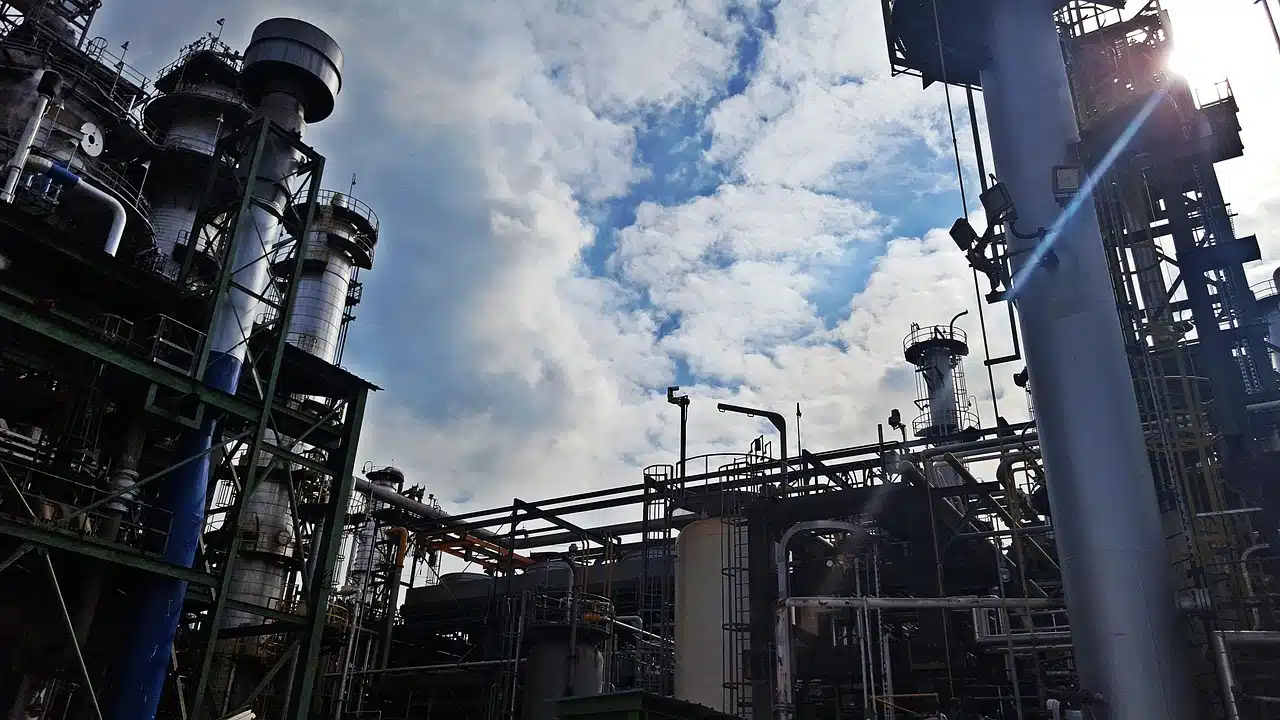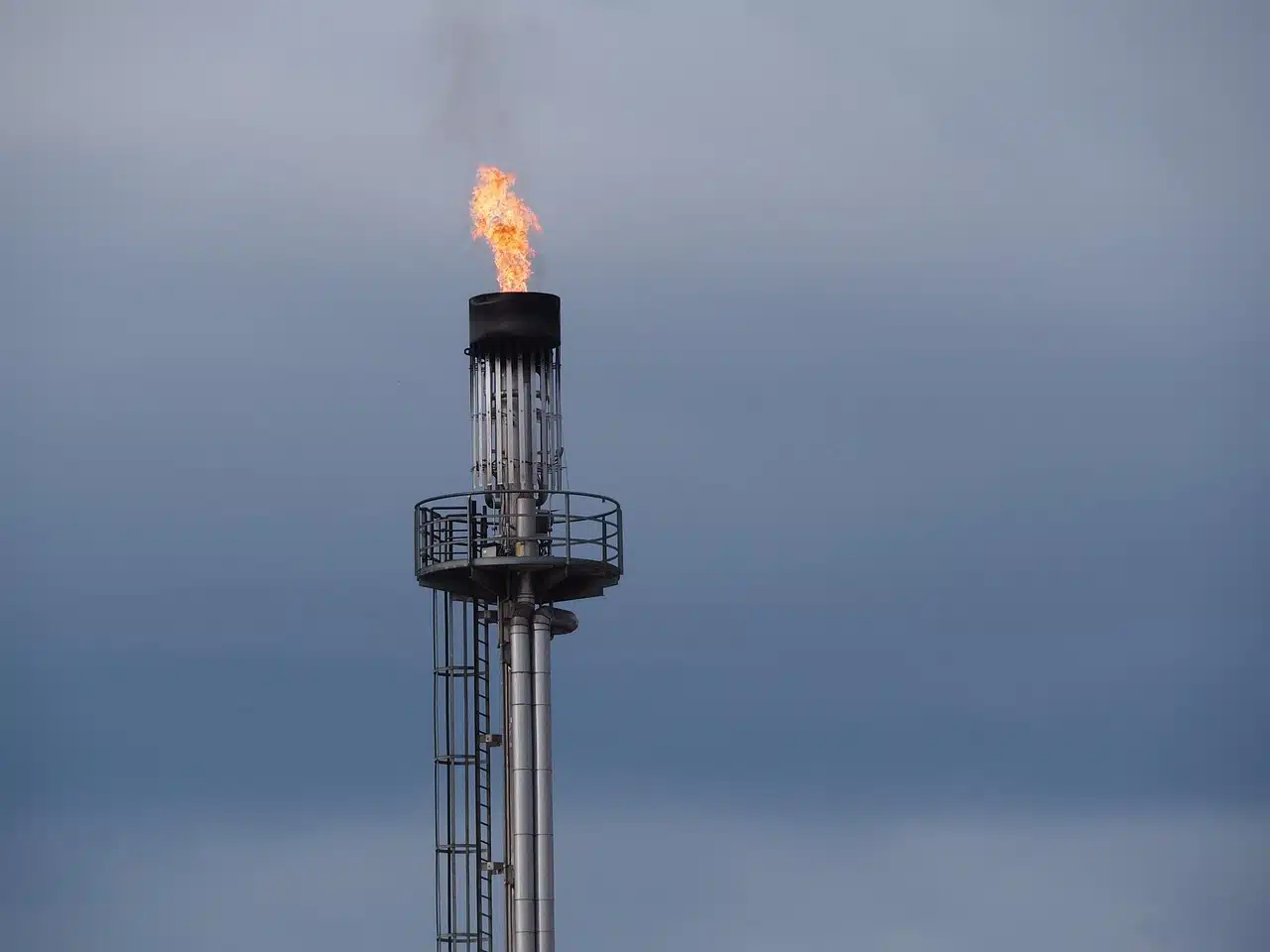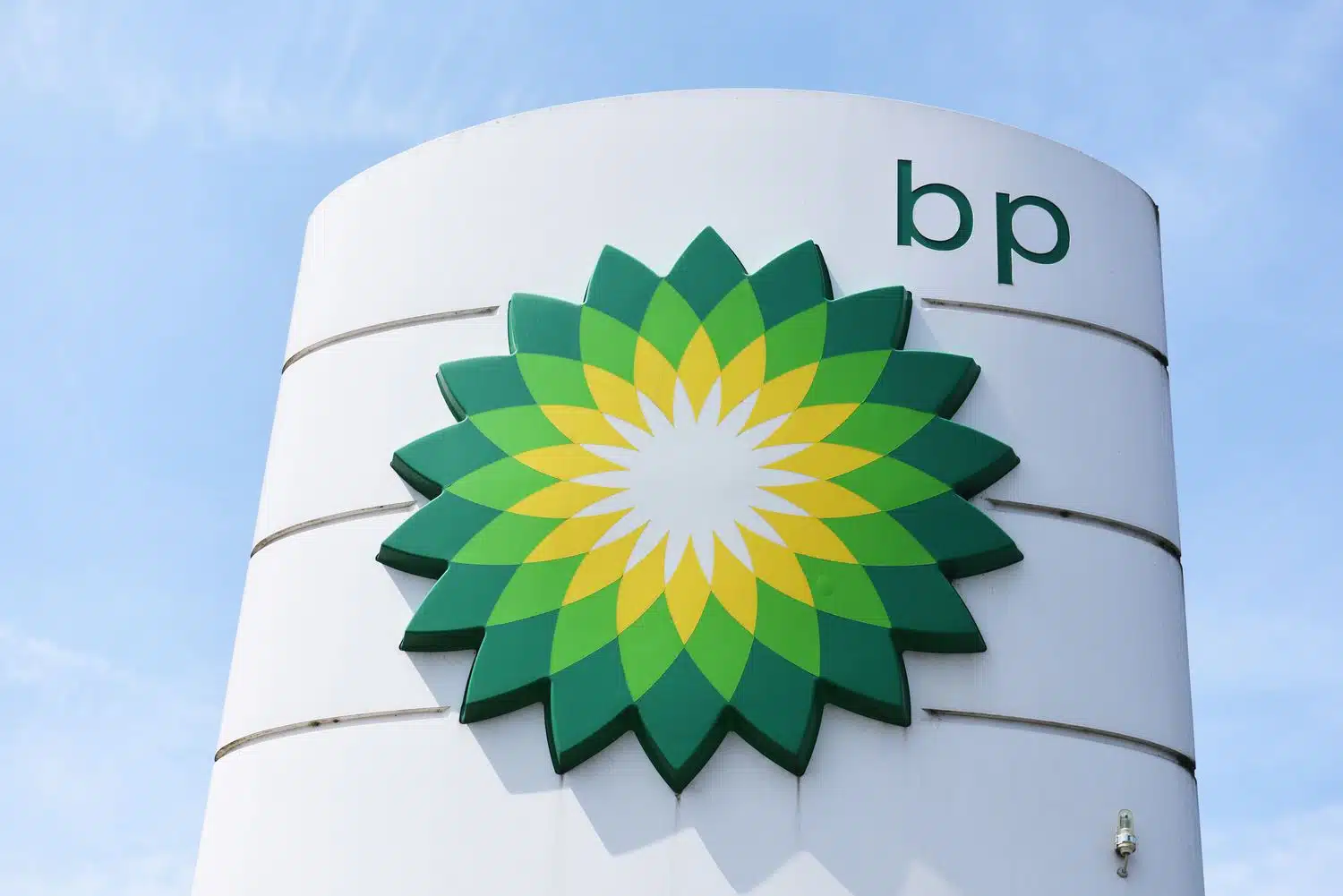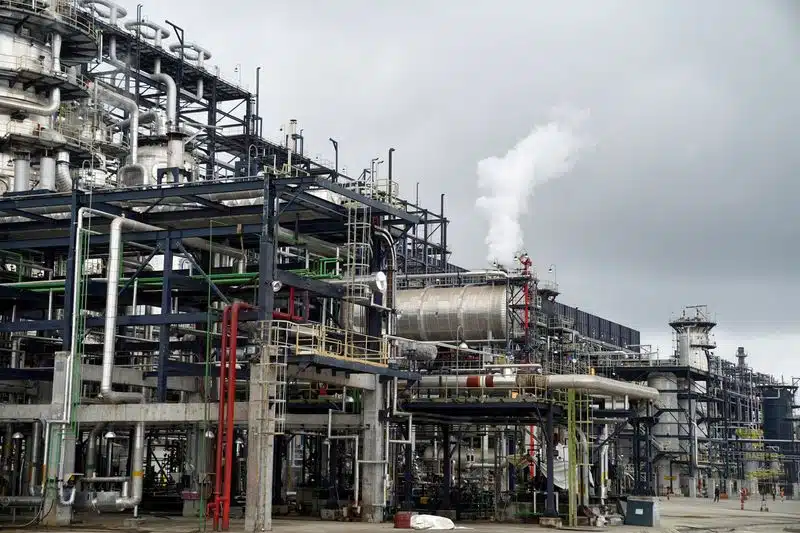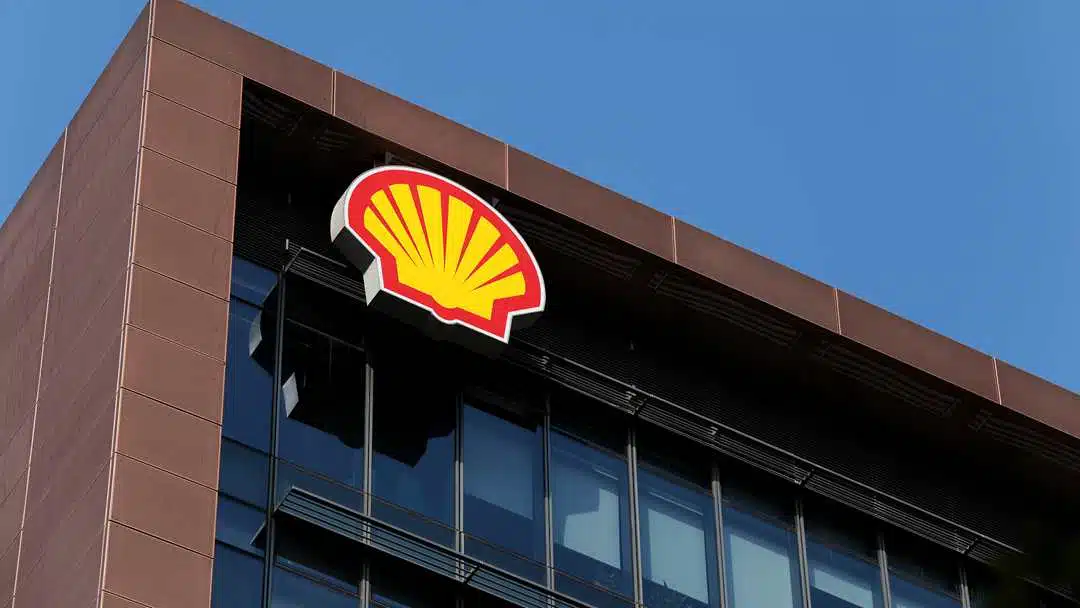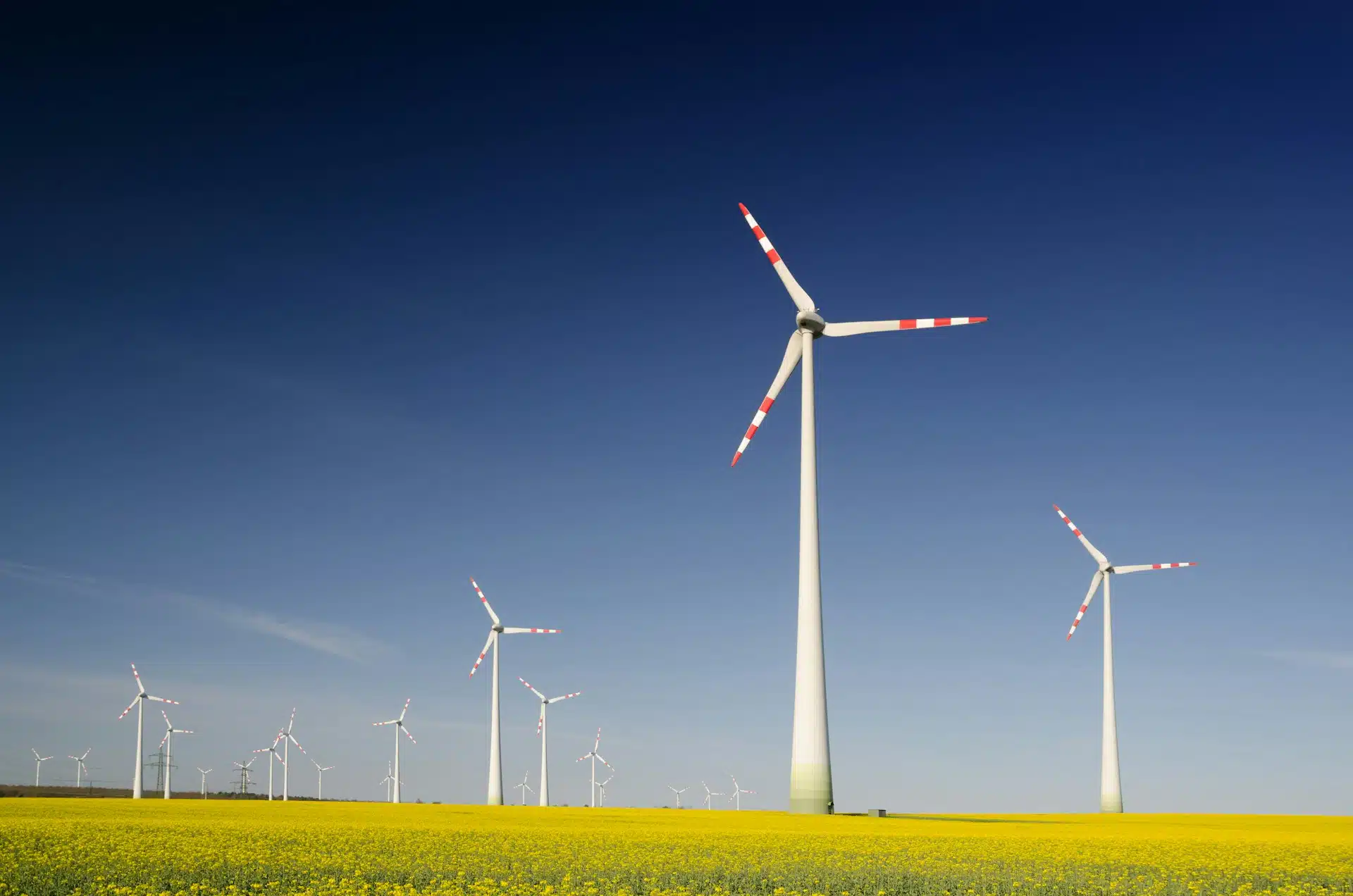The Dangote Refinery supplied 20.6 million litres of petrol per day to Nigeria’s domestic market in March 2025, accounting for 41% of the country’s total fuel consumption that month.
This was disclosed by Farouk Ahmed, Chief Executive Officer of the Nigerian Midstream and Downstream Petroleum Regulatory Authority (NMDPRA), during the “Meet-the-Press” briefing organized by the Presidential Communications Team at Aso Rock Villa, Abuja, on Tuesday.
According to Ahmed, Nigeria’s daily petrol demand averaged 49.8 million litres in March, with the Dangote Refinery emerging as the largest domestic contributor.
Its rising output has positioned it as a critical player in reducing Nigeria’s dependence on petrol imports, which are regulated by the NMDPRA and managed by oil marketing companies.
Since commencing operations, the refinery has scaled up production from 10 million litres per day in October 2024 to approximately 22 million litres per day by early 2025.
The NMDPRA also revealed that Nigeria’s petrol imports plummeted from 44.6 million litres daily in August 2024 to just 14.7 million litres by April 13, 2025—amounting to a 67% decline.
This drastic drop in imports has been offset by a 670% surge in domestic refining, largely driven by the Dangote facility.
Dangote Refinery’s monthly petrol supplies since inception:
– September 2024: 102 million litres
– October 2024: 298 million litres
– November 2024: 580 million litres
– December 2024: 398 million litres
While in 2025:
– January 2025: 692 million litres
– February 2025: 625 million litres
– March 2025: 638 million litres
– April 2025 (to date): 238 million litres
In comparison, the Nigerian National Petroleum Company Limited (NNPCL) has seen a steep decline in its contribution to domestic supply—down from 24 million litres daily in October 2024 to just 1 million litres in January 2025, with no recorded supplies since February.
The increased supply from the Dangote Refinery has also helped slash Nigeria’s petrol import bill.
According to the Central Bank of Nigeria (CBN), the country’s petroleum import expenditure fell by 23.2% in 2024, resulting in significant foreign exchange savings.
The 650,000 barrels-per-day (bpd) refinery, the largest in Africa, has also started exporting petrol to neighboring countries, including Cameroon.
The facility is launching a tender to sell 151.7 million litres of residual fuel oil this month , further expanding its reach in regional energy markets.
The NMDPRA also provided an update on the rehabilitation of Nigeria’s four state-owned refineries:
– Port Harcourt (new and old): 89.3% complete
– Warri Refinery: 88.9% complete
– Kaduna Refinery: 81.1% complete
Nigeria is most likely to achieve greater local refining capacity in the nearest future.
Dangote Refinery is ramping up production, while the above state-owned facilities inch closer to reactivation.



